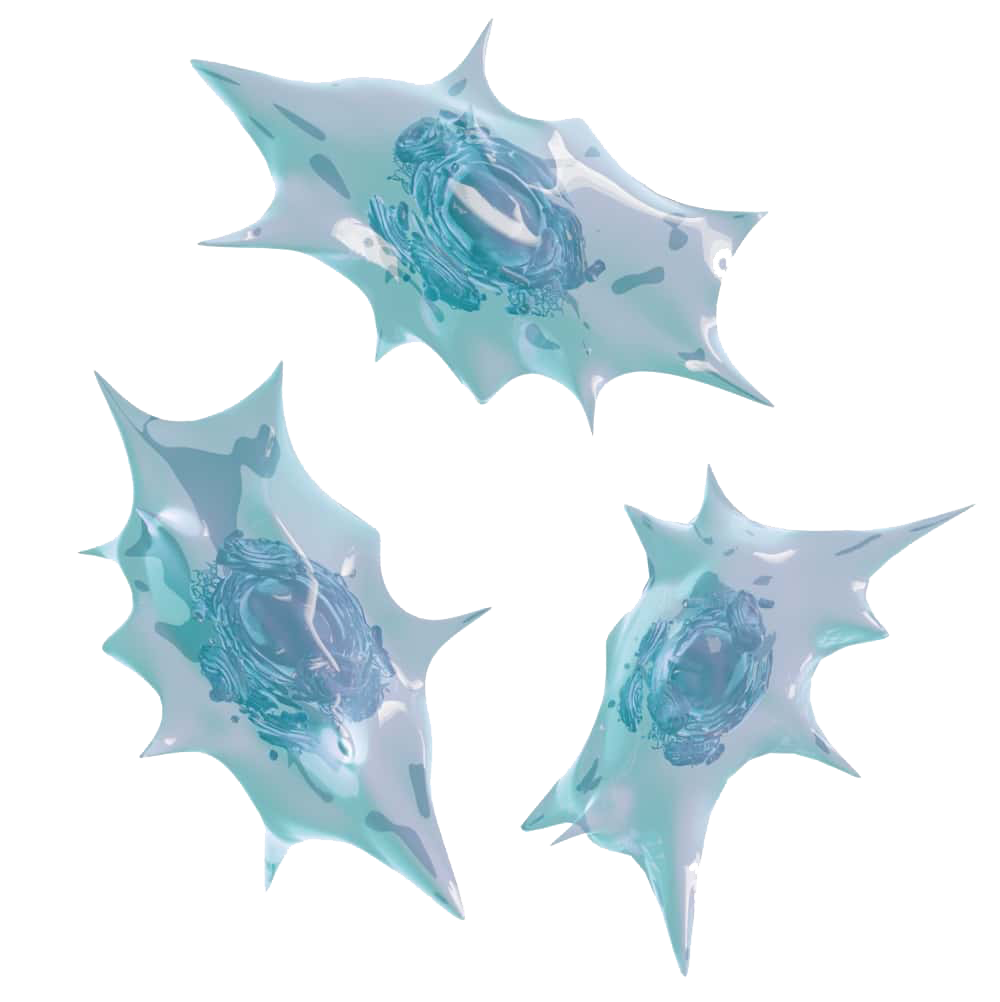We are developing Allogeneic Placental Pluripotent Cells (APPL) as a potential therapy in various autoimmune and inflammatory diseases, including Crohn’s disease, multiple sclerosis, rheumatoid arthritis, stroke, diabetic foot ulcers, and diabetic peripheral neuropathy.
– Xiaokui Zhang, PhD, Chief Scientific Officer
APPL
Allogeneic Placental Pluripotent Cells
Human placental-derived mesenchymal-like stromal cells are a novel, culture-expanded mesenchymal-like cell population derived from healthy, full-term human placental tissue. These cells are plastic-adherent and undifferentiated in vitro and express pluripotency related genes. Mesenchymal-like stromal cells are genetically stable, displaying a normal diploid chromosome count, and a normal karyotype and exhibit normal senescence after prolonged culture periods. In vitro studies showed that these cells exhibit immune-modulatory properties – they suppress effector cell function, promote tolerogenic immune phenotype, and reduce pro-inflammatory cytokine secretion. Mesenchymal-like stromal cells also possess regenerative and pro-angiogenic properties demonstrated through the secretion of several mitogenic and angiogenic factors. In vivo, we have demonstrated immune-modulatory properties of mesenchymal-like stromal cells alleviate autoimmunity in encephalomyelitis (EAE) mouse model, and possess anti-inflammatory activity in rat perineural inflammation neuritis model, anti-fibrotic effect in mice lung fibrosis model and neuroprotection and pro-neurogenesis functions in rodent stroke models.

Both intravenous and intramuscular administration formulations of mesenchymal-like stromal cells have been developed and investigated in clinical studies in Crohn’s Disease, multiple sclerosis, rheumatoid arthritis, diabetic foot ulcers, and diabetic peripheral neuropathy.
The current lead therapeutic candidates APPL, namely Allogeneic Placental Pluripotent cells, are developed utilizing genetically modification, novel media/cultivation methods to achieve desired safety profile, pluripotency, and efficacy.
RESOURCES
Stem Cells Journals
Human placenta-derived mesenchymal stromal-like cells enhance angiogenesis via T cell-dependent reprogramming of macrophage differentiation.
Journal of Vascular Surgery
Angiogenic properties of human placenta-derived adherent cells and efficacy in hindlimb ischemia.
Inflammatory Bowel Diseases
Human placenta-derived cells (PDA-001) for the treatment of moderate-to severe Crohn’s Disease: a phase 1b/2a study.
Stem Cells Journals
Human placenta-derived adherent cells improve cardiac performance in mice with chronic heart failure.
Multiple Sclerosis and Related Disorders
Human placenta-derived cells (PDA-001) for the treatment of adults with multiple sclerosis: a randomized, placebo-controlled, multiple-dose study.
Clinical and Translational Immunology
Human placenta-derived adherent cells induce tolerogenic immune responses
Inflammatory Bowel Diseases
Safety and tolerability of human placenta-derived cells (PDA-001) in treatment-resistant Crohn’s Disease: a phase 1 study.
Brain, Behavior, and Immunity
Placenta-derived adherent cells attenuate hyperalgesia and neuroinflammatory response associated with perineural inflammation in rats.
Cell Transplantation
Neuroprotective effect of human placenta-derived cell treatment of stroke in rats.
Stem Cells Journals
Human placenta-derived adherent cells prevent bone loss, stimulate bone formation, and suppress growth of multiple myeloma in bone.